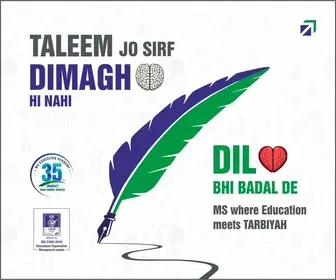
Hyderabad: Ask anyone if they’ve heard the name Abid Hasan Safrani, and the likely answer will be a puzzled “No.” For most, he is a stranger to history – despite giving India one of its most enduring patriotic slogans. Even former minister Asif Pasha had never heard of him – until a chance meeting in the 1970s brought the past to life.
The encounter was arranged by Shahnawaz Khan, a former Union Minister and an officer of the Indian National Army (INA) during World War II. Khan had served under the legendary Subhash Chandra Bose, and his visit to Hyderabad came with a personal mission: to meet an old comrade, Abid Hasan Safrani.
“I didn’t know who Safrani was,” Pasha admits. “But when Shahnawaz Khan told me he was a fellow INA officer, I agreed to take him.”
The two men made their way to a spacious home nestled near the Dargah Husain Shah Wali in Shaikpet. Inside, they found a dignified, soft-spoken man with a deep sense of quiet pride. “When we sat down, I was stunned to learn that this gentleman was the one who coined the slogan Jai Hind,” recalls Pasha in his soon to be released biography – No Regrets.
From Hyderabad to the INA
Born in Hyderabad in 1911, Abid Hasan grew up in a world where India was still under British rule, yet whispers of independence filled the air. Educated in Hyderabad and later abroad, he was a young man with a cosmopolitan outlook but a burning sense of nationalism.
In the 1940s, his life took a dramatic turn when he joined the INA – an armed force raised by Indian nationalists in Southeast Asia with the aim of securing India’s freedom by force. Under the leadership of Subhash Chandra Bose, the INA drew recruits from across religious, linguistic, and regional lines.
It was here, amid the intense training, military discipline, and political idealism of the INA, that Safrani saw the need for something more, a unifying salutation. Soldiers hailed from Punjab to Bengal, Kerala to Assam. How could they greet each other in a way that reflected their common cause, rather than their individual backgrounds?
The birth of ‘Jai Hind’
Safrani pondered the question and finally settled on two simple words: Jai Hind – “Victory to India.” It was short, powerful, and inclusive. It carried no religious overtones, no regional bias, just a shared vision of freedom.
Bose immediately embraced it, making it the official greeting of the INA. Soon, “Jai Hind” rang out in training grounds, strategy meetings, and battle cries, binding the army together in a spirit of brotherhood.
When Independence finally came in 1947, the slogan crossed from the INA into the national consciousness. Prime Ministers used it to close speeches; schoolchildren shouted it at assemblies; soldiers roared it in parades. The words became a living thread in the fabric of India’s identity.
And yet, the man who gave India this rallying cry quietly returned to civilian life.
A life in Hyderabad
After the war, Safrani chose to settle in his hometown, Hyderabad. He built a life away from politics, preferring the privacy of his Sheikhpet home to the glare of public recognition. By the time Asif Pasha and Shahnawaz Khan visited him in the 1970s, his role in history was all but forgotten by the public.
Those who knew him described him as dignified, cultured, and deeply committed to the ideals of secularism and unity that had driven the INA. Despite his immense contribution, he never sought to capitalise on his fame. There were no political campaigns, no books bearing his name, no public commemorations in his lifetime.
Perhaps that was by choice. Or perhaps it was the fate of many INA veterans, whose stories were overshadowed by other narratives in the independence struggle.
Why his legacy faded
The INA’s history has always occupied a complicated place in India’s freedom story. While the bravery of its soldiers is undisputed, its alliance with Axis powers during World War II cast a political shadow. In post-Independence India, official histories often highlighted the non-violent movement led by Mahatma Gandhi, leaving INA veterans like Safrani on the margins.
Add to this Safrani’s reluctance to seek the limelight, and it’s easy to see why his name slipped into obscurity. “People remember the slogan, but not the man,” says Asif Pasha. It’s a loss for our collective memory.
A call for recognition
Today, “Jai Hind” still echoes from the Red Fort every Independence Day. Schoolchildren still shout it in unison. Soldiers still use it as a greeting. Yet the face behind it remains hidden from the nation it helped inspire.
Some in Hyderabad’s heritage circles have called for greater recognition of Safrani – through plaques, museum exhibits, or inclusion in school history books. “He gave India a slogan that has no religion, no region, just pure patriotism,” says a local heritage activist. “In times as divided as these, remembering Abid Hasan Safrani is more relevant than ever.”
A Quiet Patriot
When Asif Pasha remembers that afternoon in Shaikpet, what stays with him is not just the revelation of who Safrani was, but the man himself – humble, composed, and unwilling to wear his achievements as a badge of ego.
“It was an honour to meet him,” Pasha says softly. “We talk about heroes from the pages of history, but sometimes they’re right there among us, living quietly, without fanfare.”
Abid Hasan Safrani passed away in 1984, leaving behind no heirs to carry his personal legacy, only the immortal words Jai Hind, still alive in the hearts and voices of millions.
And perhaps that is the truest measure of his life: a man who asked for nothing in return, but gave his country a greeting that will never fade.



